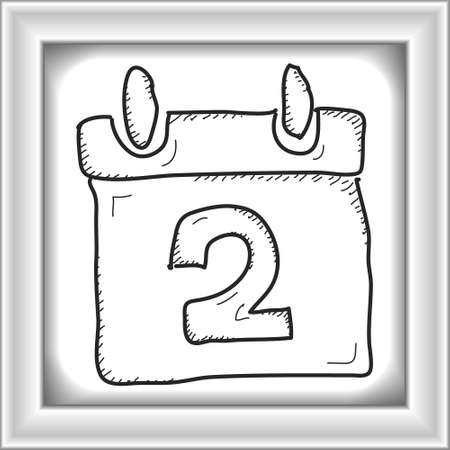1. Introduction: Setting the Scene
The intricate relationship between Christianity and astrology in British history offers a fascinating lens through which to examine the nation’s evolving cultural identity. Throughout the centuries, the stars have captivated the British imagination, serving both as a source of wonder and a subject of debate within religious circles. Understanding how religious attitudes towards astrology have shifted over time is not only vital for appreciating Britain’s complex spiritual heritage, but also for recognising the ways in which belief systems influence broader cultural practices and worldviews. This exploration invites us to consider why the Church’s stance on astrology mattered so deeply, how it shaped daily life, and what these historical tensions reveal about the enduring interplay between faith, science, and superstition in British society.
2. Medieval Britain: Astrology in the Ecclesiastical Sphere
During the medieval period in Britain, astrology occupied a complex and sometimes controversial place within ecclesiastical circles. Far from being universally condemned, astrology was actively studied and debated by clergy and scholars, especially within monastic communities and emerging universities such as Oxford and Cambridge. The Church’s attitude was nuanced, with careful distinctions drawn between different forms of astrological practice.
The Role of Clergy and Scholars
Many medieval British clergy were highly educated and familiar with classical texts that included astrological theories. Monasteries often preserved and copied manuscripts on astronomy and astrology, seeing the study of the stars as part of God’s creation. Notably, some churchmen saw astrology as a tool for understanding the natural world, which complemented their theological pursuits rather than contradicted them. However, this engagement was always balanced with caution to avoid heresy or superstition.
Astrology in Monastic and University Life
In the context of medieval universities, astrology formed a significant part of the curriculum in faculties of arts and medicine. Students learned about planetary influences not only as a theoretical subject but also for practical purposes such as medical diagnosis or agricultural planning. Monks and scholars often discussed celestial events and used astrological charts for various reasons, reflecting a pragmatic approach to knowledge.
Natural vs Judicial Astrology
The Church maintained an important distinction between natural and judicial astrology:
| Type of Astrology | Description | Church Attitude |
|---|---|---|
| Natural Astrology | Concerned with natural phenomena (e.g., weather, tides, health) | Tolerated or even encouraged if used for practical ends |
| Judicial Astrology | Pertained to predicting human affairs (e.g., fate, fortune) | Viewed with suspicion; often discouraged or condemned as it challenged divine providence |
Practical Guidance for Understanding Medieval Perspectives
If you are exploring this era, remember that medieval attitudes were shaped by both curiosity and caution. While intellectual openness allowed for astrological inquiry, moral boundaries ensured that faith remained central. This balance is key to appreciating how British religious institutions navigated the interplay between science, belief, and the mystery of the stars.

3. The Reformation and Religious Tensions
The Reformation marked a turning point in British religious and cultural life, profoundly influencing attitudes toward astrology. As the Church of England broke away from Rome, theological debates intensified, with both Catholics and emerging Protestant groups scrutinising the role of astrology in society. For Catholics, astrology’s long-standing association with natural philosophy meant that, while its practice was sometimes tolerated as part of God’s creation, it had to be carefully distinguished from fatalism and superstition. Astrologers were expected to recognise divine providence as supreme, ensuring that celestial influences did not override human free will or God’s ultimate authority.
Protestants, however, often viewed astrology with greater suspicion. Many reformers worried that astrological predictions could undermine core doctrines such as salvation by faith alone and personal responsibility before God. The notion that one’s destiny might be written in the stars conflicted with Protestant emphases on individual conscience and moral choice. Some Protestant leaders openly condemned astrology as a remnant of Catholic superstition, while others allowed for limited use—such as weather forecasting—so long as it did not encroach on matters of fate or spiritual truth.
This period saw vigorous public debate about fate, providence, and free will. Sermons, pamphlets, and university lectures reflected the anxiety: Was believing in astrology compatible with Christian doctrine? Could one consult the stars without falling into determinism? These questions were not merely academic—they shaped everyday decisions about health, marriage, and politics across Britain. The Reformation era thus set the stage for ongoing tensions between scientific curiosity and religious orthodoxy, inviting individuals to navigate their own path between cosmic wonder and spiritual caution.
Astrology in the Early Modern Period
The 16th and 17th centuries marked a fascinating era in British history, as astrology experienced significant growth and influence across various levels of society. This period, often referred to as the Early Modern Period, saw astrology move beyond the confines of academic study and into the public consciousness. The stars were no longer merely celestial bodies; they became part of everyday life, influencing decisions in both humble households and royal palaces alike.
The Popularisation of Astrology
During this time, astrology was not just for scholars or mystics. Ordinary Britons eagerly consumed almanacs filled with astrological predictions about weather, harvests, and personal fortunes. In cities like London, astrologers set up shop and offered advice on everything from health to marriage. Their services were sought after by people from all walks of life, demonstrating how deeply astrological beliefs had become woven into the social fabric.
Astrology at Court and Among Clergy
The fascination with astrology extended to the highest levels of power. Monarchs such as Queen Elizabeth I and King James I consulted court astrologers for guidance on political matters and personal affairs. Even members of the clergy engaged with astrology—some out of genuine belief, others to better understand its appeal among their congregations. The table below illustrates the differing attitudes toward astrology during this period:
| Group | Attitude Toward Astrology | Key Figures/Examples |
|---|---|---|
| Royal Court | Supportive/Consultative | John Dee (advisor to Elizabeth I) |
| Clergy | Mixed (Curiosity to Caution) | Some Anglican priests used astrology; Puritans often criticised it |
| General Public | Highly Interested/Trusting | Widespread use of astrological almanacs |
| Church Authorities | Sceptical/Oppositional | Bishops issuing warnings against superstition |
Scepticism from Church Authorities
This widespread enthusiasm inevitably sparked concern among church leaders. As scientific thinking began to take hold, church authorities increasingly viewed astrology as superstitious or even heretical. Bishops and theologians issued warnings about relying too heavily on star-based predictions, reminding their flocks that true providence came from God rather than celestial influences. This tension between popular belief and official doctrine would shape British attitudes toward astrology well into the modern era.
A Tipping Point in Religious Attitudes
The Early Modern Period thus represents a critical juncture—a time when astrology was simultaneously flourishing and facing growing opposition from religious authorities. Understanding this dynamic helps us appreciate the complexity of British cultural and spiritual life during these transformative centuries, where faith, curiosity, and scepticism coexisted under the same sky.
5. Enlightenment to Victorian Era: Decline and Resurgence
The period from the Enlightenment through to the Victorian era marked a dramatic shift in British attitudes towards astrology, shaped by both scientific advancement and religious scrutiny. The Enlightenment, with its emphasis on reason, empirical evidence, and critical inquiry, ushered in an age where traditional beliefs—including astrology—were rigorously challenged.
Scientific Rationalism Takes Hold
During the seventeenth and eighteenth centuries, leading thinkers such as Isaac Newton and other members of the Royal Society promoted scientific rationalism across Britain. This new approach favoured observable phenomena and reproducible results over mystical or supernatural explanations. Astronomy flourished as a legitimate science, while astrology was increasingly dismissed as superstition or pseudoscience. Religious leaders, particularly within the Anglican Church, echoed these sentiments, arguing that astrology undermined faith in divine providence and encouraged fatalism rather than Christian responsibility.
Religious Critique Intensifies
The Church’s critique of astrology became more pronounced during this time. Sermons and pamphlets warned parishioners against trusting horoscopes or seeking guidance from the stars, framing such practices as inconsistent with Christian doctrine. Instead, believers were urged to place their trust in scripture and prayer. For many clergy, astrology represented a rival source of authority that threatened the moral and spiritual order of society.
A Persistent Public Fascination
Despite official disapproval from both the scientific establishment and the Church, public fascination with astrology never truly disappeared. Almanacs containing astrological predictions remained popular among ordinary Britons throughout the eighteenth century. By the nineteenth century, especially during the Victorian era, there was a notable revival of interest in mysticism and occult practices, including astrology. This resurgence often coexisted with mainstream religious observance; for some Victorians, exploring the stars offered a sense of wonder and possibility that complemented rather than contradicted their faith.
This period in British history thus reveals a complex interplay between rational critique and enduring curiosity—a testament to the ways in which cultural attitudes toward the stars have always reflected broader questions about knowledge, belief, and human destiny.
6. Contemporary Conversations
In today’s Britain, the relationship between the Church and astrology continues to spark thoughtful debate, reflecting a society that is both rooted in tradition and open to new spiritual ideas. The modern British Church, while largely maintaining its historical scepticism towards astrology, faces a landscape where spiritual curiosity has become increasingly diverse. This changing environment invites us to reflect on how faith and alternative beliefs can coexist or come into tension in contemporary culture.
The Modern Church’s Perspective
Most mainstream Christian denominations in the UK, including the Church of England, still regard astrology with caution. Official teachings emphasise a reliance on God’s providence rather than the influence of stars or planets. Clergy often counsel congregants to seek spiritual guidance through prayer, scripture, and community rather than horoscopes. However, there is also recognition that many people today are searching for meaning and connection beyond traditional religious boundaries.
Shifting Spiritual Landscapes
The popularity of astrology among young people and those exploring non-traditional spirituality presents both a challenge and an opportunity for the British Church. On one hand, it can be seen as competition for spiritual attention; on the other, it reflects a broader desire for understanding life’s mysteries—a desire that faith communities can acknowledge and engage with compassionately. Some churches have responded by fostering open conversations about personal belief systems, encouraging respectful dialogue rather than outright condemnation.
The Ongoing Cultural Debate
The conversation around astrology and religion in Britain remains vibrant. For some, astrology offers a sense of agency or comfort amid uncertainty; for others, it stands at odds with religious teachings about divine sovereignty. Within families, friendship groups, and even church communities, these differing views can prompt both conflict and deeper reflection. The British tradition of respectful debate—so often part of the national character—means these discussions usually unfold with civility.
Ultimately, the presence of astrology in British culture challenges both individuals and institutions to consider what it means to live faithfully in a pluralistic society. Whether viewed with suspicion or curiosity, astrology continues to inspire questions about destiny, meaning, and the nature of belief—questions that sit at the heart of both religious inquiry and personal growth.


